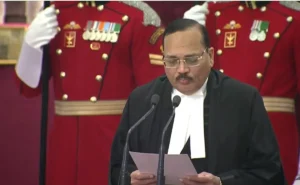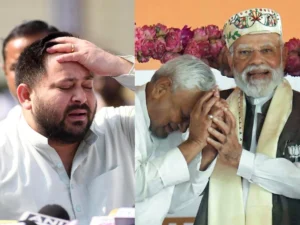Bangladesh chief advisor makes powerful demands regarding the ongoing humanitarian crisis affecting displaced populations. The Rohingya community continues facing uncertainty while living in temporary refugee camps across southeastern regions. International pressure mounts as leaders call for immediate action and accountability measures.
Current State of the Rohingya Crisis
The refugee crisis began intensifying during 2017 when military operations forced hundreds of thousands to flee Myanmar. Myanmar military forces conducted systematic attacks against Rohingya communities, creating one of the world’s largest refugee emergencies. Today, approximately one million displaced people remain in overcrowded camps within Bangladesh’s borders.
Living conditions within these camps remain challenging despite ongoing humanitarian efforts from global organizations. Basic necessities like clean water, proper sanitation, and adequate healthcare services remain limited resources. Educational opportunities for children born in camps represent another major concern affecting future generations.
Bangladesh continues bearing the substantial burden of hosting these displaced populations without sufficient international support. The temporary nature of refugee camps has become a permanent reality for countless families. Economic strain on local communities increases as resources become stretched beyond normal capacity limits.
Bangladesh’s Leadership Takes Strong Stance
The Bangladeshi leader recently emphasized the urgent need for concrete action regarding this prolonged humanitarian situation. Speaking at recent international forums, officials stressed that temporary solutions cannot continue indefinitely without permanent resolutions. The government demands meaningful progress toward addressing root causes of displacement rather than managing symptoms.
Key demands from Bangladesh’s leadership include immediate accountability for crimes committed against Rohingya populations. International courts must pursue justice through proper legal channels to ensure those responsible face consequences. Truth and reconciliation processes could help communities heal while preventing future atrocities.
Furthermore, Bangladesh insists on creating conditions that would enable dignified repatriation when circumstances allow safe passage. The safe return process requires substantial changes within Myanmar’s political and security landscape before implementation becomes feasible.
International Response and Accountability Measures
Global leaders recognize the severity of this humanitarian crisis while struggling to implement effective solutions. The United Nations continues documenting evidence of systematic violence against Rohingya communities for potential legal proceedings. Various human rights organizations maintain pressure on Myanmar’s military leadership through sanctions and diplomatic isolation.
Several countries have imposed targeted economic sanctions on Myanmar military officials and associated business interests. These measures aim to pressure leadership toward policy changes regarding displaced populations and democratic governance. However, sanctions alone have proven insufficient to create meaningful progress toward resolution.
International courts are examining evidence of genocide and crimes against humanity committed against Rohingya populations. The International Court of Justice has issued provisional measures ordering Myanmar to prevent further genocidal acts. Legal proceedings continue advancing slowly through complex international judicial systems.
Challenges Facing Repatriation Efforts
Multiple obstacles prevent the immediate implementation of safe return initiatives for displaced Rohingya families. Security conditions within Myanmar remain unstable following the military coup that disrupted civilian government operations. Armed conflicts across multiple regions create additional risks for vulnerable populations attempting to return.
The absence of citizenship rights for Rohingya people represents another fundamental barrier to sustainable repatriation efforts. Myanmar’s government has historically denied basic legal recognition to this ethnic minority group. Without proper documentation and legal status, returnees would remain vulnerable to future persecution.
Essential infrastructure within Rakhine State requires substantial rebuilding before supporting large-scale population returns. Many villages were destroyed during military operations, leaving limited housing and economic opportunities. International development assistance would be necessary to create viable living conditions.
Current repatriation attempts have resulted in minimal voluntary returns due to these ongoing security and legal concerns:
- Lack of safety guarantees from Myanmar authorities
- Absence of citizenship recognition and legal protections
- Destroyed infrastructure and limited economic opportunities
- Ongoing military presence in affected regions
Regional Impact and Economic Considerations
The prolonged refugee crisis continues affecting regional stability and economic development across southeastern Bangladesh. Local communities face increased competition for jobs, resources, and basic services as displaced populations remain. Environmental degradation around camp areas creates additional challenges for sustainable development initiatives.
Cox’s Bazar district, hosting the majority of refugee camps, experiences particular strain on infrastructure and natural resources. Deforestation and groundwater depletion affect both refugee and host communities equally. Climate change impacts compound these environmental challenges through increased flooding and extreme weather events.
Regional cooperation becomes essential for addressing this complex humanitarian situation effectively. Neighboring countries must work together with international partners to share responsibilities and resources. ASEAN nations face particular pressure to address member state actions affecting regional stability.

Path Forward and Hope for Resolution
Despite ongoing challenges, diplomatic efforts continue pursuing sustainable solutions that address root causes of displacement. The international community maintains focus on accountability measures while supporting humanitarian assistance programs. Long-term success requires coordinated action across multiple levels of governance and civil society.
Justice for Rohingya communities remains central to any lasting resolution of this crisis. Truth-telling processes and legal accountability could help heal wounds while deterring future violations. Transitional justice mechanisms might support reconciliation efforts between communities when conditions allow.
Educational initiatives within refugee camps help prepare younger generations for eventual reintegration or resettlement opportunities. Skills training programs provide hope and purpose while families await resolution. These investments in human capital could support economic development regardless of final destination.
The Bangladeshi leader’s continued advocacy keeps international attention focused on this humanitarian emergency. Diplomatic pressure combined with legal proceedings may eventually create conditions enabling dignified return. However, sustainable solutions require genuine commitment from Myanmar’s leadership to address underlying discrimination and violence.







Be First to Comment